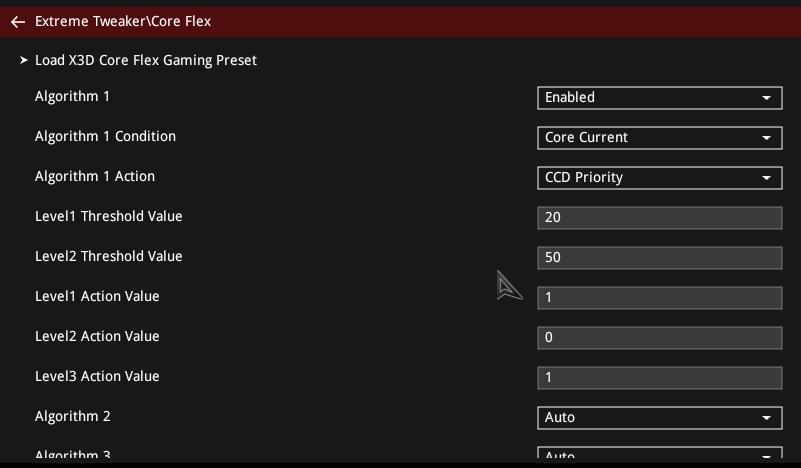The Ryzen 7000X3D processors by AMD, which include the Ryzen 9 7950X3D, Ryzen 9 7900X3D, and Ryzen 7 7800X3D, are set to deliver exceptional gaming performance due to the 3D V-Cache.
However, these processors only apply the cache to one of the two CCDs (Complex Core Dies) that make up the chip architecture. Thus, proper software and firmware configuration is critical for gaming performance. For non-gaming tasks, the CCD without cache could be the better option as it can achieve higher boost clocks. When assigning tasks to cores (or CCDs), mistakes may occur from both the OS and firmware, leading to slower threads receiving priority workloads.
A new Asus X670 Beta BIOS has advanced settings that enable you to control the X3D cores. The screen shots shared by Twitter user HXL (@9550pro) show a range of algorithm conditions and actions that can activate the correct CCD core, which is OS agnostic since it is built into the BIOS. Tweaks to the CCD are essential for non-gaming workloads because the Ryzen 9 7950X3D is rumored to have lower frequencies on its V-Cache CCD than the cheaper 7800X3D. This processor has eight cores in each of its two CCDs. AMD has also announced that the non-V-Cache CCDs can achieve higher clocks. In an interview with PC World, AMD's director of product management Scott Stankard stated that "by not stacking one of the CCDs, it let us push the 1T boost, the maximum T boost, up to 5.7 GHz."
Additional information and download links for the beta BIOS can be found in this thread on Asus's ROG forum. This report suggests that many, if not all, X670 motherboards, including some of the top motherboards, will soon receive BIOS updates that enable the fine-tuning of which workloads are assigned to which CCD. Possibly other chipsets, such as B650, will get updated also.



